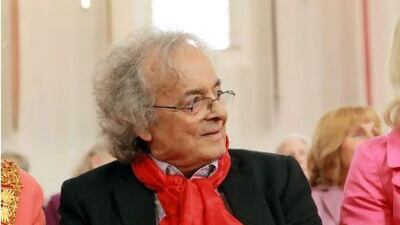STOCKHOLM // The Nobel literature jury has hired more experts to review work by authors writing in non-European languages in an attempt to broaden the scope of the prize.
The move comes after criticism that the Swedish Academy, which picks the literature winners, is too euro-centric in its selections - Europeans have won seven of the last 10 prizes.
The experts "are our scouts out in the world and should help us to not miss important authors," Peter Englund, the permanent secretary of the academy, said on Tuesday.
Mr Englund said in the past two years the academy boosted to between 10 and 15 the number of freelance experts proposing works in languages that jury members have not mastered.
Before, it only enlisted the help of a handful of such experts.
"The big problem is not the English-speaking part of the world - there is no language area that has received more Nobel Prizes in literature than the English language," Mr Englund said.
"What if we miss an American author or if we miss an English author - that's not what keeps me up at night," Mr Englund said. "But it is rather what does our competence look like when it comes to Indonesian literature?"
No American has won since Toni Morrison, in 1993. Canada is home to at least three of the world's most respected authors, Margaret Atwood, Alice Munro and Michael Ondaatje. But the last Canadian to receive the Nobel was Saul Bellow in 1976, who left for the US as a boy and became identified with his long-time home, Chicago.
Last year's laureate, the Peruvian Mario Vargas Llosa, was the first South American writer to win the award since Gabriel Garcia Marquez in 1982, and there hasn't been an Asian winner since China-born Gao Xingjian won in 2000. There has also been a long gap for Middle East and sub-Saharan Africa, home to acclaimed authors Amos Oz of Israel and the Syrian poet Adonis.
The academy will announce the winner of the 10 million kronor (Dh5.4m) Nobel Prize in literature today.
Mr Englund's predecessor, Horace Engdahl, sparked outrage in US literature circles three years ago when he dismissed American writers as "too sensitive to trends in their own mass culture".

